Moments Which Defined Home
by Terra_Cide, HSM Editor-in-Chief
Strange to realize PlayStation Home is more than half a decade old at this point. For those who have used it so much throughout the years, there are layers upon layers of memories tied to it. Friendships. Emotions. Real, actual stories of people in a virtual world, and the society they created from it.
No one knows how much longer Home has left. But just as it’s apropos to reminisce about PS3 memories as the new console era dawns, perhaps it’s time to look back at the moments which dramatically shaped Home.
Note: this is obviously a subjective list, and your mileage will undoubtedly vary. I’m genuinely curious as to what moments you believe defined Home. Let’s dive in.
1.) Open beta launches.
This one’s a given. A console-based social MMO was a damn gutsy experiment for Sony. Sure, the mid- to latter end of the last decade was when social MMOs were all the craze, and it seemed like a very logical move to have one on a console. Though Home may have never shaken its “uncool” image with the gaming community at large for launching with so little in the way of attractions (and shipping on a console which comes without a bundled keyboard, making socialization on a social network for gamers rather difficult), let’s applaud Sony for standing by it and committing resources to it to help it grow.
There are some who still consider the original Xi to be the high-water-mark of Home. Xi, an Alternate Reality Game created by nDreams for Sony, did something that nothing else in Home before or since has done: it turned Home itself into a game. Granted, this was all paid for by Sony (doubtlessly at considerable cost) as a marketing effort to drive people into Home, but it established that an MMO experience is perhaps best executed as a living, breathing, ever-changing world with real be-there-or-you’ll-miss-it urgency, rather than as a social metaverse with no clearly defined purpose.
3.) The bench glitch.
Let’s establish something up front: glitching should’ve never existed to begin with. Glitching means that the underlying code running behind the scenes needs to be worked on, because while it may be fun for users to be somewhere or do something they’re not supposed to be doing, glitching also means that certain features may not be able to be fully or properly implemented on a development level until the underlying weakness is fixed.
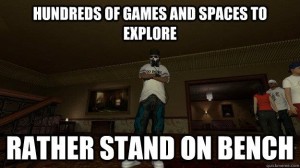 But there’s a lesson to be learnt from glitching, and all of the outcry every time a core update was deployed that took away another glitch in exchange for a new feature: Home itself should be a game, not just a platform for games. And in the absence of a formal game structure, users will create their own meta-games to amuse each other. The most pertinent example of this was the Central Plaza “bench glitch,” which was often one of the first things a new user would be exposed to upon entering Home for the first time.
But there’s a lesson to be learnt from glitching, and all of the outcry every time a core update was deployed that took away another glitch in exchange for a new feature: Home itself should be a game, not just a platform for games. And in the absence of a formal game structure, users will create their own meta-games to amuse each other. The most pertinent example of this was the Central Plaza “bench glitch,” which was often one of the first things a new user would be exposed to upon entering Home for the first time.
It provides a valuable insight into building virtual worlds: when the laws of physics do not have to apply, why not program them in new and bizarre ways? And why not look at this as an opportunity to monetize?
Lockwood is generally regarded as one of Home’s most successful third-party developers, and while the Sodium universe is only now receiving a major update quite some time after the Sodium2 deployment, the initial release of the Sodium Hub was a massive leap forward for Home. Here was a third-party developer building a world within a world, with its own internal currency, jobs to perform (including social gaming such as Scorpio’s bartending), interlinked spaces, hints of a backstory, and what is usually considered Home’s first proper game: SodiumOne. It was proof that the Home engine was capable of supporting games more dynamic and robust than bowling or billiards, and it remains one of Home’s greatest success stories as a gaming deployment.
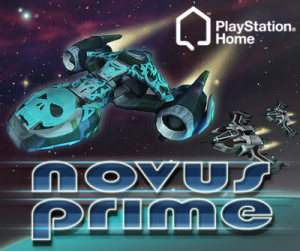 5.) Hellfire Games’ Novus Prime
5.) Hellfire Games’ Novus Prime
Home 1.5 may have introduced multiplayer APIs to the core client, but Hellfire Games actually released Home’s first truly multiplayer game — Novus Prime — before 1.5 was even deployed. Of particular note, Novus Prime was originally designed as a PSN title, and instead became a Home title. For the Home user base, this was interpreted as a massive vote of confidence in the viability of the platform, and after several major updates in content and related product releases, it’s clear that Jeff Posey and his team scored quite a hit with a game that’s still going strong today.
6.) LOOT’s EOD service, with Crackle and RadioIO.
As Norse has written, LOOT are the masters of breaking the fourth wall between Home and the outside world, making Home feel more connected to everything else at large, and introducing major IPs to the Home consumer base. You’d be hard-pressed to deny the impact that the EOD had (and continues to have) on Home, particularly given the inclusion of dynamically streamed content from Crackle and RadioIO.
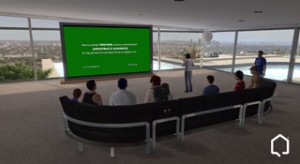
Home may never be able to fully live up to the vision state originally presented by Phil Harrison — frankly, I’m amazed anyone thought half that stuff could be pulled off to begin with, given the obvious legalities involved — but the EOD gives users a chance to watch movies and listen to a broad array of music together. And once it went portable, it breathed new life into every personal estate and clubhouse users had already bought, and proved that the social end of Home can monetize just as well — if not better — than the gaming side.
It’s also worth noting that the EOD is really the only convenient outlet (at the time of this writing) for getting user-generated content into Home, and so far two community groups — PSTalent and HSM — have been given channels on the EOD, broadcasting UGC directly to the Home consumer base. If that’s not an achievement worthy of praise, tell me what is.
Sure, the Great PSN Outage of 2011 had far greater impact on Sony than just PlayStation Home. But it also taught all of Home’s third-party developers one critical lesson: to not be so Home-centric in their thinking, and to not place all of their eggs in one basket. When your entire revenue model is based on one platform provider delivering your content, you’ve created a single point of failure — and one of the obvious effects of the 2011 outage is that Home’s third-party developers have overtly begun working on non-Home projects (Avakin, Axis Game Factory, Forsaken Planet, etc.) and experimenting with migrating their Home-centric consumers to non-Home projects.
Quite frankly, given the question marks of how much — or how little — time Home has left, any developer who is solely Home-centric at this point needs to shift gears now. That doesn’t mean Home should be abandoned — quite the opposite, actually — but basic business logic suggests that you don’t want to be wholly dependent on one source of revenue to keep your lights turned on.
It remains to this day one of the most controversial business decisions in the history of Home: to rip out the primary social gathering space for Home’s user base and replace it with themed “district” public spaces in an attempt to overtly shift Home to a gaming platform instead of a social network for gamers.
Was the Hub, and all of the money spent upon it, truly necessary? It merely reskinned Home, and did utterly nothing to fundamentally alter or deepen the Home experience, except for the unmoderated travesty known as the Activity Board. It was undoubtedly a colossal cost item to appear on SCEA’s books, and with no overt means of monetizing, it’s hard to justify why that money was invested, or what the business logic was behind the move. Could not that same amount of money have been put into R&D for massive core client updates instead of reskins?
It is perhaps telling that after that fiscal year ended, with the metaphorical paint still fresh on the Hub, the SCEA community management team was folded into the larger Digital Platforms initiative. Whether this was ultimately good or bad for Home is purely speculative, but with a new console launch imminent, it seems logical to assume that Home may not be as much of a priority as it once was. Perhaps we should be grateful they’ve decided to keep the lights turned on, since what little they’ve revealed about the PS4’s social sharing features seems to bypass the need for a 3D virtual chat world altogether.
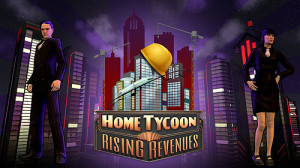 9.) The Year of the Game, and the fallout from it.
9.) The Year of the Game, and the fallout from it.
2012 was coined Home’s Year of the Game by HSM, and it’s clear that that was a very accurate description. With Home having shifted overtly into being a gaming platform, no less than five major Home development studios — Sony VASG, Lockwood, Heavy Water, VEEMEE and Hellfire — unleashed staggeringly expensive and complex games into Home, with Cutthroats, Mercia, Emo Ray, No Man’s Land and Home Tycoon, respectively. It got to the point where the summer of 2012 was one atomic bomb content release after another, and anything smaller simply got overlooked.
But here’s the problem: aside from Home Tycoon — and possibly No Man’s Land — did any of these games actually net a profit? Or did they illustrate, finally and irrefutably, that Home is a social network for gamers and not a gaming platform? If the various rumblings and rumors are true — and it does seem to be supported by the fact that most of that 2012 gaming content hasn’t seen any major updates since it was deployed — then Home simply doesn’t have a large enough user base that actively monetizes (and is specifically motivated to monetize gaming experiences, rather than social experiences) to justify that sort of large-scale investment.
For Sony, it was an experiment in making Home more appealing to the people who wrote it off, and perhaps ignored the monetizing consumers who already “got” Home. For the smaller third-party developers, who shouldered the development costs, the risks were (and are) much higher. And it is indeed very telling that Home 2013 has seen an overt shift in product deployments towards monetizing the social end of Home, rather than the gaming end. It is doubtlessly a safer bet — with less cost and a shorter development cycle — to monetize the social end of Home, and given the overt lack of guidance from Sony as to Home’s future, it is perhaps unsurprising that no new and major game announcements for Home are on the horizon.
10.) SCEJ/SCEAsia Home no longer accept content submissions.
All good things must come to an end. While we accurately predicted the closure of Asia and Japan regions prior to SCEA and SCEE, it is still nonetheless a monumental upheaval whose ripple effect is only now beginning to be felt. What does it mean to experience a Home region that will never again see new content, that has no hope of being more than it is today? There are some fascinating sociological questions worth examining, particularly since inevitably the two remaining regions must face the same issue at some point in the future.
One honorable mention we want to give out: Digital Leisure’s Western Village. We’re not really at liberty to comment on why we believe this specific product release will be a defining moment in Home’s evolution, but we eagerly await its debut. It may just end up being one of Home’s greatest success stories.
This is our list of moments which defined Home, but it may not be your list. Home is a deeply personal experience to those who frequent it. Were I to write a more personal list, I would probably include the removal of glitching Sully’s Bar, as that irrevocably changed part of Home’s social scene. Undoubtedly, you have your own personal moments which shaped Home for you as well.
Share
| Tweet |


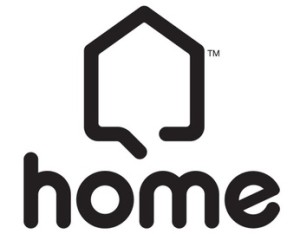


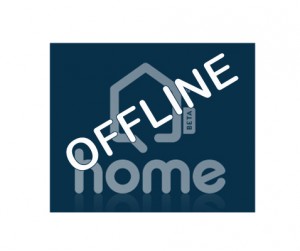

 Twitter
Twitter
I’ll be honest one of the moments that hit me the hardest was the removal of the Resident Evil space (was one of my favorite spaces) great read, Terra.
Mine are two of maybe several:
The Hed kandi experience was really a space that went far beyond the Singstar space could ever provide in terms of socializing and quality music. The details and production that Veemee had done to that space was awesome and legit.
Speaking of Singstar, I found great friends at th VIP section of the said space when it was introduced. Fond memories at the time and when that generic music was cool to dance to at the time, so was talking to the many that were looking for mature, grown folks to converse with.
Fashion-wise, Diesel and Billabong was the defining moment of all-time for me. Especially during Christmas of 2011 when central Plaza was introduced to a holiday, festive decoration that had me staying there for long periods of time.
This was a great trip down memory lane! One of my personal defining moments was when I bought the summer House. It’s seems so small and overshadowed now, but back in the day it was an amazing thing to have your own private part corner of Home. Nice read Terra
That makes me feel old, in the EU the summer house was free when it first was released. locoroco personal space was really the first long term thing I remember doing on home. Defining moment came couple years later when I met up with a group of friends who I still hang out with now.
Given the positions that you and Norse currently hold, the comments you’ve made here regarding the redesign of Home and the attempt to transition it to a “gaming platform” have to be given a bit of credence I’d say. For those of us who’ve been around since the very beginning, it’s bittersweet to remember who came down on which side of the issue, and the arguments which were then made. Oh, the irony.
To me, the two aren’t mutually exclusive; it made a lot of sense for third-party developers to attempt to utilize Home as a gaming platform (given where the core client was at the time), and for Sony to attempt to brand it as such to appeal to a wider audience. At the same time, though, it was also important to attempt to deepen Home’s social experience (something which I publicly pushed for almost exactly three years ago in my interview with Giant Bomb’s Patrick Klepek), which could only really come through core client updates and new features, in order to further monetize and retain Home’s core social users.
What ultimately happened was that the gaming side of Home came and went first, before the new social features — LMOs, trophies, quests, loyalty programs, interactive multiplayer emotes, etc. — were deployed. At this stage, it appears that Home has retrenched itself solely to catering to its core user base, without much effort to attract new users — which, in terms of long-term viability, doesn’t necessarily bode well. (And that’s exactly why it was so important, years earlier, to *not* exclusively go down this road.)
Terra and I have been vilified by some of our more vocal opponents because we looked at Home from a business standpoint and understood the pragmatic necessity driving the business decisions at the time. I have no doubt that there are a lot of simmering resentments to this very day from various parties, and when the inevitable day comes that Home finally grinds to a halt, there will likely be no shortage of finger-pointing and “If only they’d listened to me” hyperbole. Ultimately, though, the only logical way a different course could have been chosen is if Home had a wholly different business plan and implementation up front.
Personally, I’m at the point now where I just don’t have much time left in my day to indulge in the old debate topics. Once you see behind the curtain of Home, and you really dive into it from the development side, a lot of the “Why aren’t things like THIS!?” questions are very quickly answered. The catch is that because of all the legal restrictions, you can’t really share any of that info. So it’s virtually impossible, when someone argues from a position that’s provably incorrect, to substantiate *why* it’s incorrect without giving out sensitive information. Which makes holding a classic Internet Argument(tm) even more of an exercise in futility.
Not that it much matters, anyway; at this point, after this many years, the major players are so hardened in their respective positions that I doubt stone tablets from God himself would change anything. I just hope everyone can enjoy Home for what it is — because what it is is still pretty darn magical.